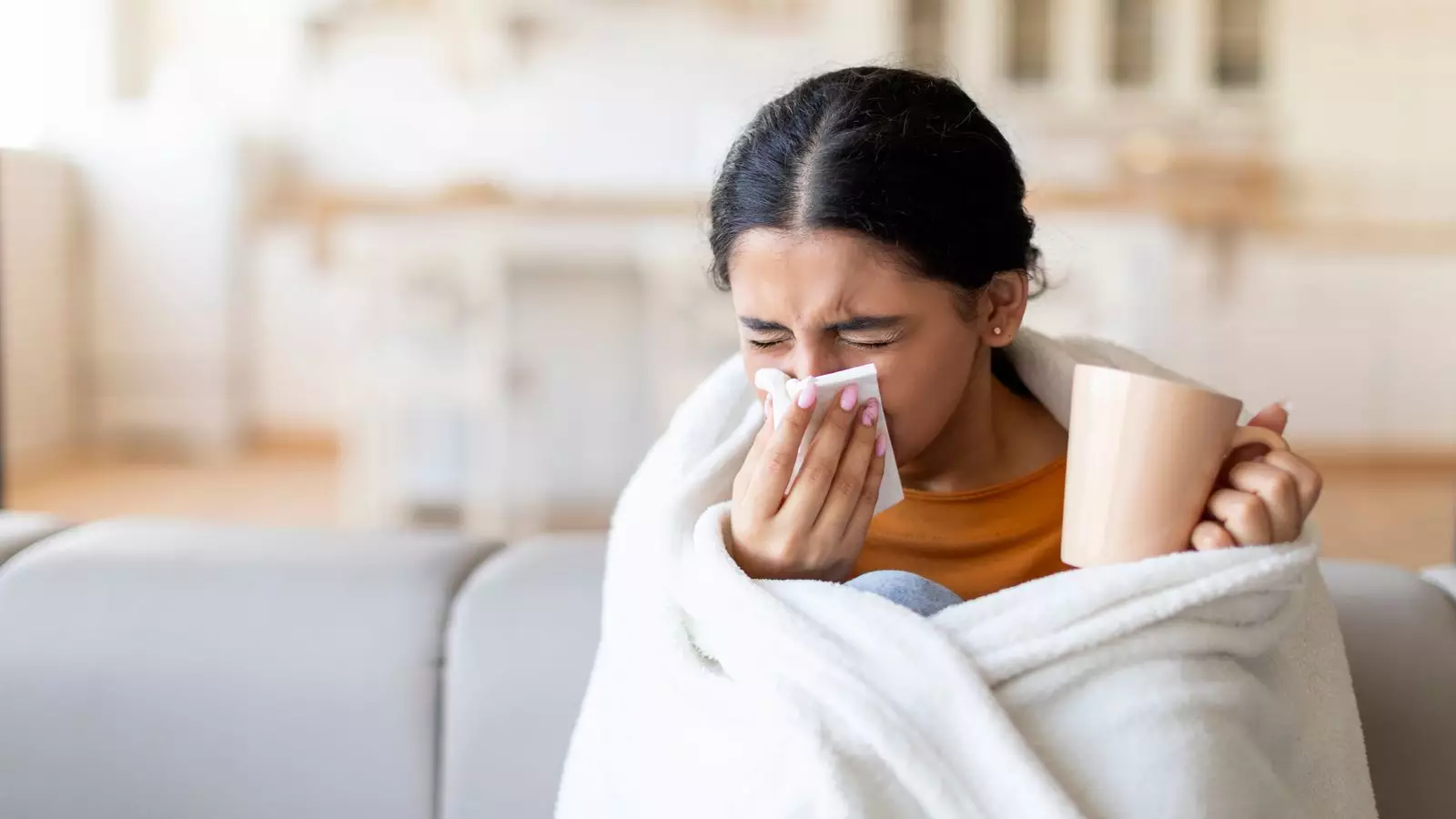As winter approaches, the United Kingdom faces a concerning surge in seasonal illnesses, marked by a staggering 70% increase in hospital admissions due to influenza in just one week. According to the National Health Service (NHS), an average of 1,861 patients were hospitalized with flu symptoms daily last week, a significant rise from the prior week’s 1,099 cases and a sharp escalation from only 402 admissions at the same time last year. This spike brings to light the growing impact of flu as the predominant viral illness currently circulating among the population.
The Demographics of the Current Flu Surge
The latest data from the UK Health Security Agency indicates that children aged 5 to 14 years are disproportionately affected by flu infections. However, as schools and nurseries prepare to close for winter, health officials anticipate a rise in flu cases among adults as well. This situation is further complicated by the concurrent rise of Norovirus, known for causing the winter vomiting bug, and Respiratory Syncytial Virus (RSV), which is a common culprit behind coughs and colds, particularly in infants. The NHS reports an average of 837 beds occupied due to Norovirus symptoms, reflecting a 10% increase from the previous week and a significant jump of 64% compared to last year. Similarly, an average of 152 children were hospitalized due to RSV daily, a slight uptick from 142 cases the prior week.
The alarming prevalence of various viral illnesses has triggered fears of a “quad-demic,” a term that refers to the simultaneous impact of four respiratory viruses: influenza, COVID-19, Norovirus, and RSV. Experts, including GP David Lloyd, have raised concerns about the heightened risk and complications associated with contracting multiple viruses during this season, particularly as social gatherings increase during the holidays. With families spending more time indoors, the potential for viral transmission escalates, prompting health officials to urge vaccination as a critical precautionary measure.
In light of the current health landscape, the NHS is emphasizing the urgency of vaccination against influenza, COVID-19, and RSV. High-risk groups, including those aged over 65, pregnant women, and individuals with pre-existing health conditions, are urged to obtain their flu vaccinations for free at local pharmacies. Vaccines are also accessible at various community events, including Christmas markets and sporting venues, making it easier for individuals to protect themselves and their families. Moreover, pregnant women are recommended to receive the RSV vaccine to safeguard their newborns.
Professor Sir Stephen Powis of NHS England has expressed grave concern regarding the recent surge in hospitalizations due to influenza and other seasonal viruses, reiterating the necessity for timely vaccination to mitigate the risk of severe illness. Health Secretary Wes Streeting has echoed this sentiment, emphasizing the critical need for the public to act swiftly to shield themselves and the wider community from the impending health crisis.
The pressures on the NHS are not confined to flu and related viral illnesses. November has become the busiest month on record for Accident & Emergency (A&E) departments in England, with 2.31 million attendances reported. Unfortunately, the efficiency of care delivery is slipping, as evidenced by a decrease in patients seen within the four-hour target, which dropped from 58.1% in October to 57% in November. Additionally, ambulance handover times are lengthening, with an average delay of nearly 43 minutes, surpassing the previous year’s average for the same period.
However, amid these challenges, the NHS has noted a gradual decline in overall waiting lists for elective treatments. The waiting list decreased to 7.54 million in October, with the number of patients waiting a year or more at the lowest since late 2020. These developments reflect a complex and dynamic healthcare scenario in the UK, underscoring both the pressures posed by seasonal illnesses and gradual improvements in elective treatment wait times.
The convergence of flu epidemics, Norovirus, RSV, and lingering effects of COVID-19 paints a stark picture for the UK this winter. With health officials reinforcing the importance of vaccination, the community’s response will be vital in mitigating the risks associated with these viral surges. Ensuring that the public remains informed and proactive can significantly influence health outcomes and protect the NHS from exponential pressure during the busy winter months ahead.

